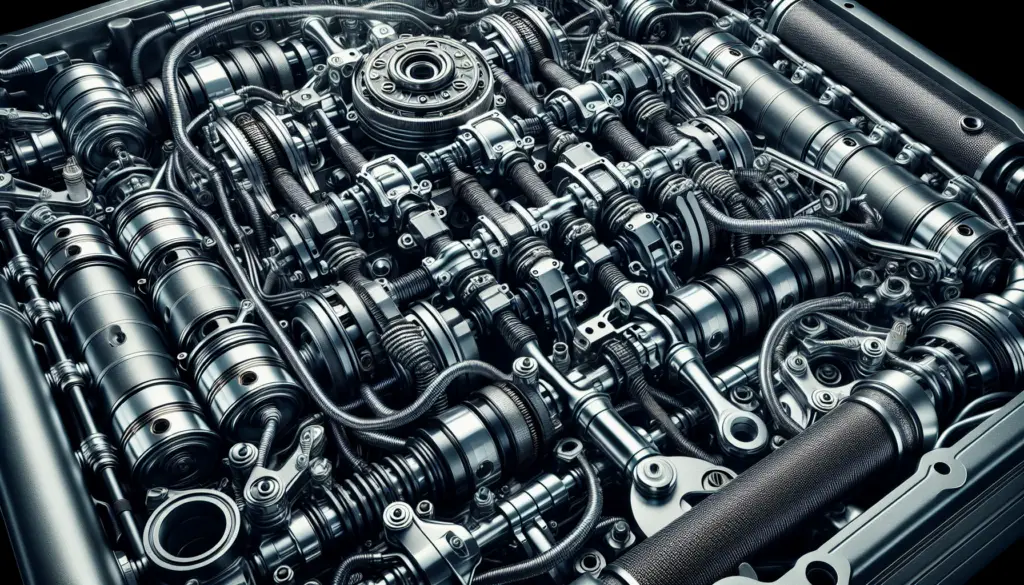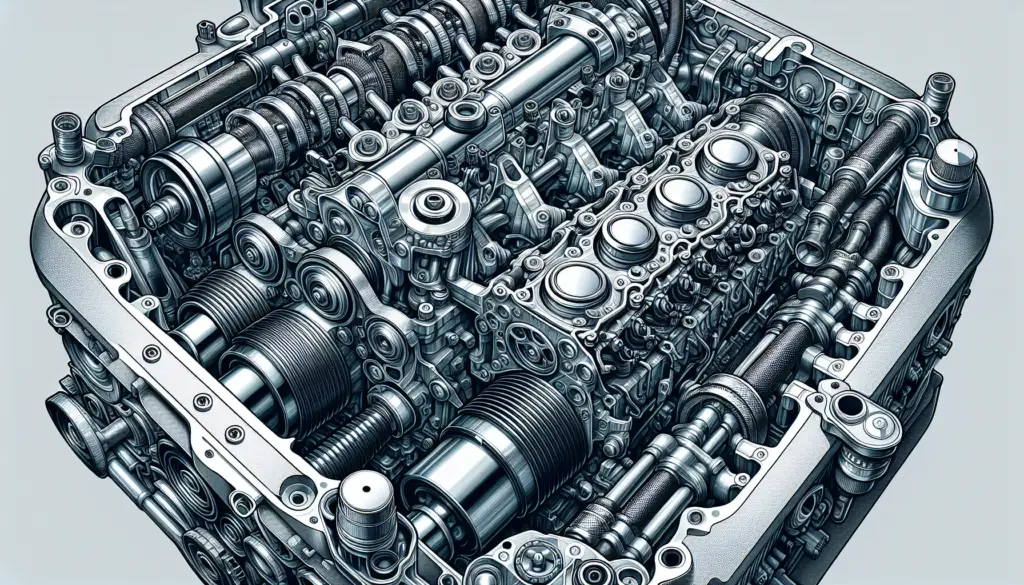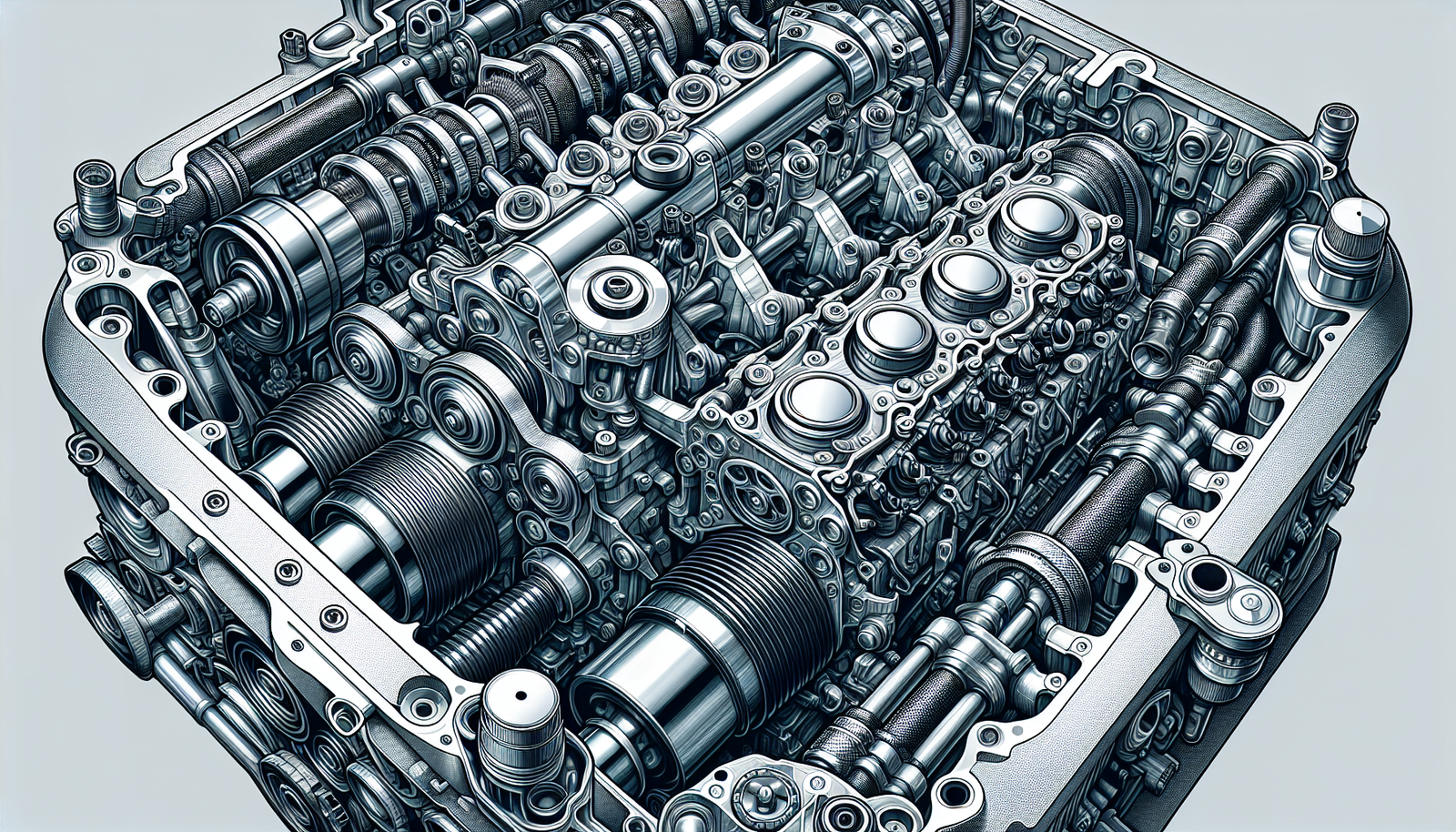It doesn’t take inheriting a mechanic’s gene to fully understand your car’s engine problems and how to solve them. “Common Engine Problems and How to Troubleshoot Them” is the handy guide you’ve been searching for. The article has practical insights and a step-by-step analysis of the most common issues your vehicle’s engine can experience – whether it’s a weird sound, a malfunction indicator light, or a sudden loss of power. Not just that, it also equips you with enough knowledge to troubleshoot them, potentially saving you time and money before you visit a professional. Strap in, it’s time to understand what’s under your car’s hood and feel more confident about it.
Engine Not Starting
Have you ever found yourself in a situation where you insert your car key into the ignition, turn it, but your engine refuses to start? Well, don’t panic. Driving is a lot of fun until these surprises make your vehicle undependable. Let’s break down your engine starting issues.
Checking the battery
Often, the root of the problem could lie within your battery. If your car battery is weak, your car may simply refuse to start. This might be due to depleted charge, old age, a defective alternator, or even something as simple as leaving your headlights on. You can use a multimeter to test your battery’s voltage. If it reads below 12 volts, you may need a jump start or even a battery replacement.
Testing ignition switch
A problematic ignition switch could be another reason why your car won’t roar to life. If turning the ignition key doesn’t do anything at all or you notice your dashboard lights flickering, then the likelihood is high that the ignition switch could be faulty. A professional mechanic should be trusted to replace any defective ignition switches.
Inspecting starter motor
Your starter motor could also be responsible for this annoyance. When you turn the ignition key, and you hear a clicking sound instead of the engine cranking, then you might want to give your starter motor some attention. Have a mechanic inspect it and replace it if necessary.
Overheating Engine
Nothing is more terrifying than seeing smoke billowing out of your hood, after noticing your temperature gauge has crept into the red. Overheating can cause significant engine damage and should be addressed promptly.
Examining the cooling system
Begin by investigating your cooling system – the lifeblood to your engine’s temperature control. This includes your coolant levels, the radiator, water pump, and thermostat. A leak in any of these components could lead to an overheated engine.
Assessing the radiator
Your radiator plays an integral part in your cooling system. Debris, leaks or malfunctioning radiator fans can all cause your radiator to fail, leading to an overheating issue. Cleaning, repairing or replacing your radiator can effectively solve this problem.
Checking for blockages
A blockage in your coolant passages can lead to poor circulation and subsequently cause your engine to overheat. Regular flushing of your cooling system can help prevent this situation.
Testing thermostat
A failing thermostat is another common cause of overheating. The thermostat regulates the amount of coolant that flows between the radiator and the engine. When it malfunctions, it could trap the coolant in the radiator and prevent it from absorbing heat from the engine.

Engine Running Rough
Are you experiencing shaky rides, noticeable vehicle hesitation or the engine producing a ‘spitting’ sound? These are signs that your engine is running rough.
Checking spark plugs
Your spark plugs could be the culprits. They are responsible for igniting the fuel/air mixture in your engine’s cylinders. If they become old or dirty, they may misfire causing your engine to run rough. Regularly inspect and replace your spark plugs as necessary.
Inspecting fuel injectors
Dirty or clogged fuel injectors can restrict the fuel flow to your engine, causing it to misfire. A regular fuel system cleaner can help keep these injectors in top condition.
Identifying timing issues
A timing issue can cause your engine to run poorly. If your timing belt has slipped, it can cause your engine’s valves and pistons to fall out of balance, leading to a rough operational state. Have your mechanic check the timing belt and replace it if necessary.
Assessing air filters
Air filters play an essential role in maintaining your engine’s health. A dirty air filter will restrict airflow into the engine and may contribute to it running poorly. Regularly checking and replacing your air filters can prevent this situation.
Poor Fuel Economy
Noticing you need to fill up your tank more frequently can be an indicator of poor fuel economy. Here are some things to check out.
Evaluating tire pressures
Your tire pressures can drastically impact your fuel efficiency. Over-inflated tires can lose their grip, whereas under-inflated tires might consume extra fuel because of the increased rolling resistance. Ensure your tires are correctly inflated to optimize your fuel consumption.
Monitoring driving habits
Your driving habits often impact how much fuel your vehicle uses. Rapid acceleration, excessive idling, and fast driving can lead to poor fuel consumption. Aim to drive smoother and at consistent speeds to help improve your fuel economy.
Checking for dragging brakes
A stuck brake caliper can cause the brakes to drag, resulting in more fuel usage due to the extra power needed to keep the car moving. Inspecting your brakes and fixing any dragging can increase your fuel efficiency.
Assessing air filters
As mentioned earlier, a clogged air filter restricts the air entering the engine, causing it to work harder and thus, consume more fuel. Regular air filter changes can help improve your fuel economy.

Oil Leaks
Oil leaks can be messy and pose a genuine threat to your engine’s wellbeing. They usually leave a distinctive mark on your driveway and can lead to your engine being deprived of oil, which can lead to severe engine damage.
Checking for noticeable oil puddles
An easy way to investigate an oil leak is to look for oil puddles underneath your parked car. If you notice any, your vehicle could be leaking oil.
Inspecting engine for leaks
Identifying where exactly your car is leaking from can be trickier. Possible spots could be the oil filter, oil filler cap, oil drain plug or even from the engine itself. A detailed inspection can help identify the leaking source and provide a direction for the needed repairs.
Testing engine oil pressure
If your engine is leaking oil, it might also suffer from low oil pressure. If your oil warning light is on, it’s crucial to have your oil pressure tested and fix the leak promptly.
Engine Misfiring
Engine misfires can lead to increased emissions, poor fuel economy and can potentially damage your engine. Here’s what you can check if you’re experiencing misfires.
Identifying potential spark plug issues
Faulty spark plugs are a common cause of engine misfires. If your spark plugs are dirty or worn out, they may fail to ignite the fuel-air mixture efficiently, leading to a misfire.
Checking for faulty fuel injectors
Faulty fuel injectors can disrupt the proper air/fuel mixture needed in the combustion cycle, causing the engine to misfire. Your fuel injectors should be inspected and cleaned or replaced if required.
Evaluating possibility of clogged air filters
Clogged air filters can restrict sufficient air supply from reaching the combustion chamber which could potentially cause a misfire condition. As you now know, regular air filter maintenance is crucial in preventing such issues.
Stalling Engine
A stalling engine can cause a significant safety concern, especially if it happens while driving.
Investigating for possible fuel system problems
Fuel system problems, including a problematic fuel pump or fuel filter, can cause your engine to stall. Regularly inspecting and maintaining your fuel system can prevent this from happening.
Checking for faulty sensors
Faulty sensors, such as the mass airflow sensor or throttle position sensor, may deliver incorrect data to the engine control unit, potentially resulting in engine stalls.
Assessing ignition system
A malfunctioning ignition system, including spark plug or ignition coil issues, could also lead to stalling issues.
Smoke from Engine
Smoke emanating from your engine is typically an indication that something is wrong and your car needs attention.
Identifying the color of smoke
The color of the smoke can provide clues as to what the problem might be. Blue smoke often indicates oil burning, white smoke could signal coolant leaks, and black smoke usually points to excessive fuel consumption.
Understanding different types of smoke
It’s essential to understand that different types of smoke may indicate various potential issues. Each color of smoke corresponds with a distinct issue and requires the proper course of action to remedy.
Assessing for blown head gaskets
Blown head gaskets can cause serious engine damage and should be addressed immediately. They often result in white smoke from the exhaust and may cause oil to mix with the coolant.
Looking for possible transmission fluid leaks
Transmission fluid leaks can also cause smoke from the engine. This happens when the leaking fluid hits hot parts of the engine or exhaust. If the smoke has a burning or sweet smell, it might be due to a transmission fluid leak.
Knocking Noise in the Engine
A persistent knocking noise from your engine is often a warning sign of potential issues.
Checking for possible worn bearings
Worn bearings can often cause a knocking sound. Bearings reduce friction between moving engine parts, and with time, they wear out, causing loud noises from your engine under load.
Inspecting for possibly failing piston pins
Failing piston pins can also result in a knocking sound. The piston pins connect the rods to the pistons, and if they wear out or start to fail, they can cause a persistent knocking noise.
Looking for problems in the crankshaft
A damaged or broken crankshaft can also create loud knocking noises. If the damage is confirmed, you’ll likely need to overhaul or replace your engine.
Reduced Engine Power
Reduced engine power can turn a dream drive into a nightmare real quick.
Monitoring engine belts
Worn or damaged engine belts can result in less efficient power transmission, leading to reduced engine power. Regularly inspect your belts for wear and replace them when necessary.
Checking for possible air intake issues
Issues with the air intake system, such as a dirty air filter or a malfunctioning mass air flow sensor, can limit the air getting into your engine, leading to reduced power.
Assessing the condition of spark plugs
Again, those little spark plugs might be the culprits. Worn spark plugs can severely affect your engine’s power as they might cause an incomplete combustion cycle.
Evaluating exhaust system for restrictions
A restricted exhaust system can cause reduced engine power. If your muffler is packed with soot or your catalytic converter is blocked, your engine won’t expel exhaust gases efficiently, which could lead to a decrease in engine power.
In conclusion, many common engine issues can be prevented with regular vehicle checks and maintenance. Always pay attention to your vehicle’s signs and symptoms. And remember, when in doubt, always consult with a professional mechanic to avoid causing further damages to your vehicle.


[…] of the open water, when suddenly, your boat engine grinds to a halt. What do you do? “how to troubleshoot Common Boat Engine Problems At Sea” equips you with effective solutions to tackle such […]